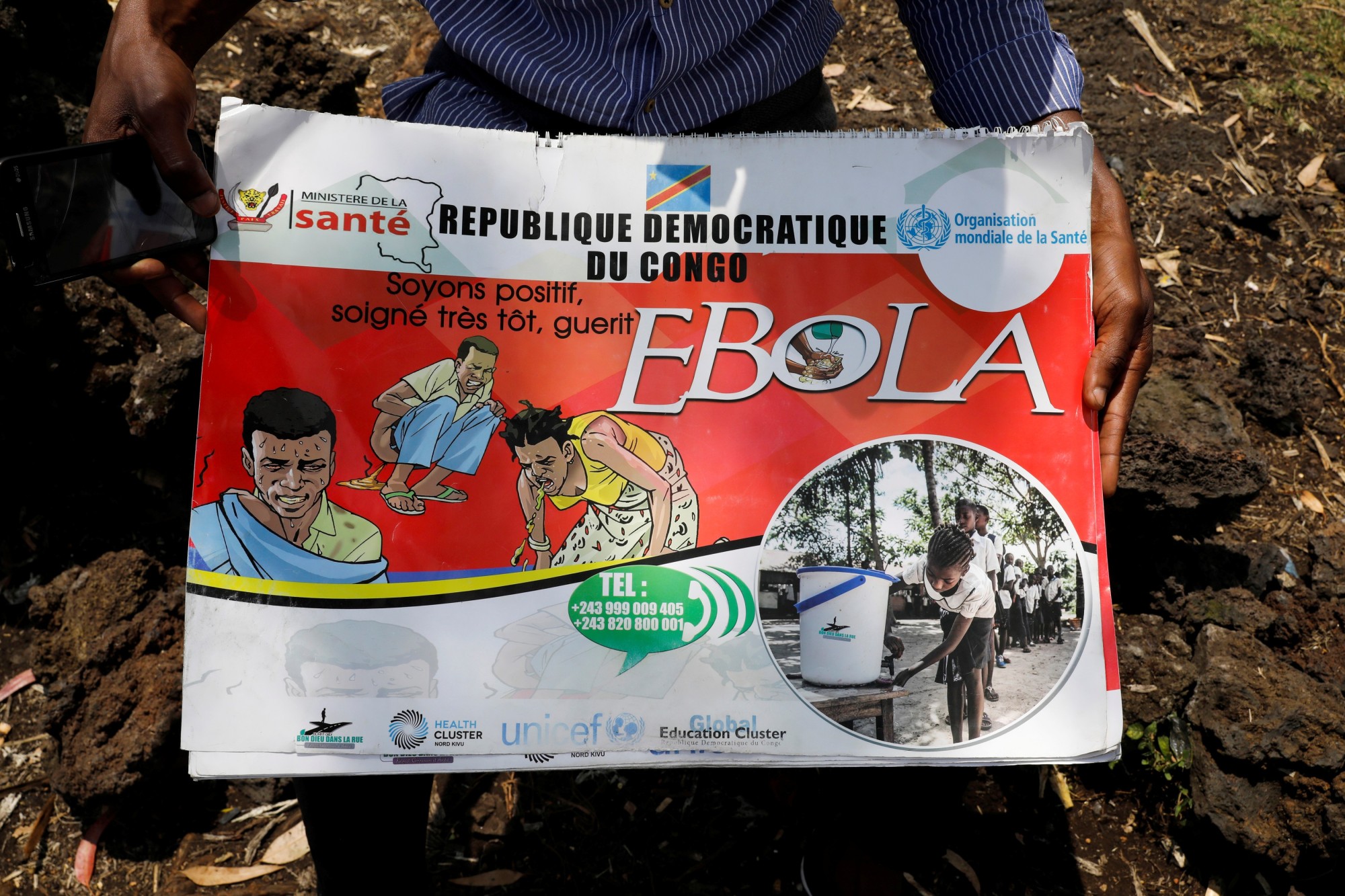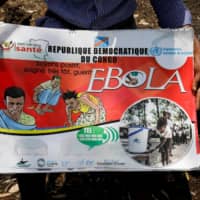A woman in her 70s from Saitama Prefecture who recently returned from a visit to Congo tested negative Sunday for a possible Ebola infection at a medical institute in Tokyo, the health ministry said.
The woman, whose name is being withheld, came back from Congo on July 31. Her body temperature rose to 39.2 around 7 p.m. on Saturday, raising suspicions of a possible Ebola infection, the Health, Labor and Welfare Ministry said.
The National Institute of Infectious Diseases released the results Sunday afternoon after it finished blood tests on the woman, the ministry said, adding that she will stay hospitalized for the time being.
An Ebola outbreak was confirmed in Congo last year, and according to World Health Organization, the total number of confirmed deaths have totaled 1,729 as of July 31 this year.
The Ebola virus can be transmitted only after a patient develops symptoms. Thus the infection risk for passengers who had flown on the same airplane as the woman would have likely been "extremely low," the Prime Minister's Office said on its anti-disaster Twitter account.
According to the health ministry, the woman said she had not had any contact with Ebola patients while in Congo.
Ebola is a severe, often fatal illness, with an average death rate of around 50 percent, according to the WHO.
People can be infected with Ebola either through contact with infected animals or through contact with bodily fluids from infected humans. Most cases are caused by human to human transmission.
According to the health ministry, the incubation period of Ebola is 2 to 21 days, and a patient will first suffers symptoms such as a high fever, headache and muscle aches. These symptoms are likely to be followed by bloody vomiting and diarrhea.




